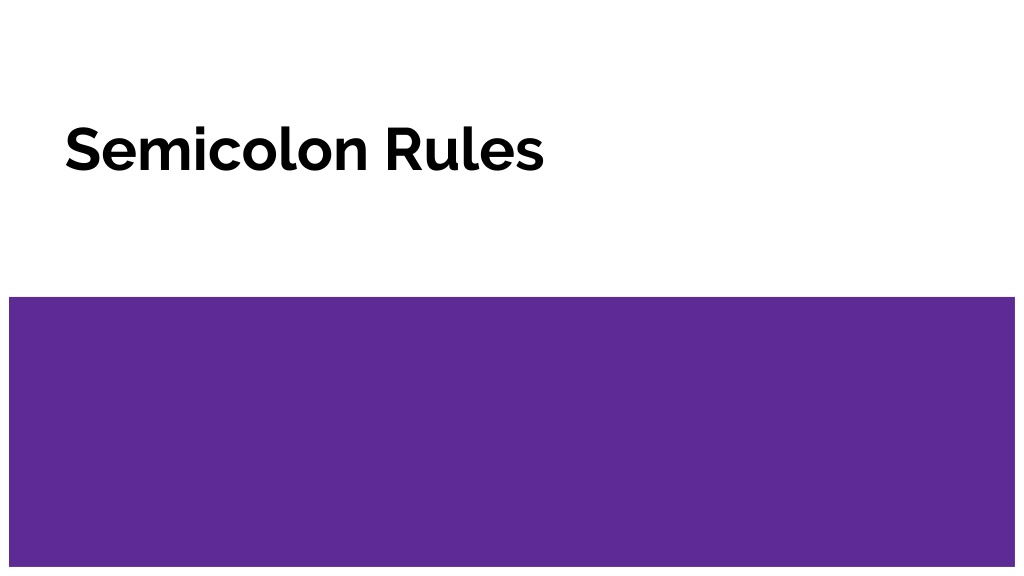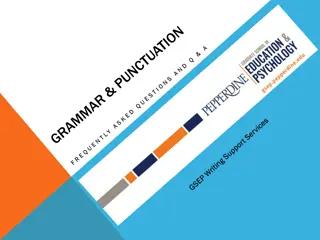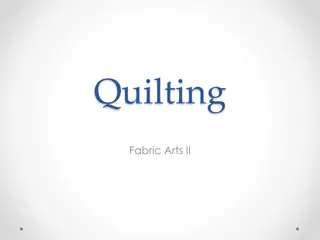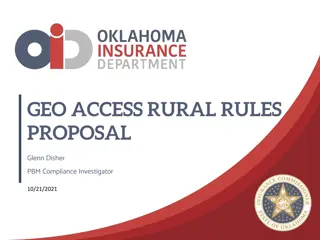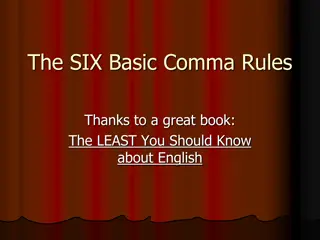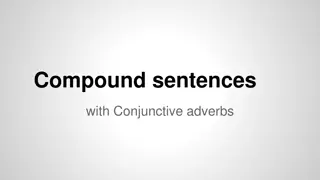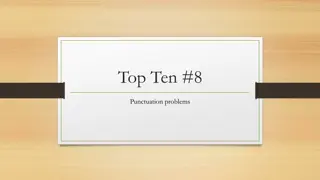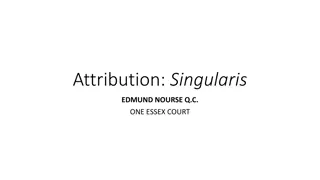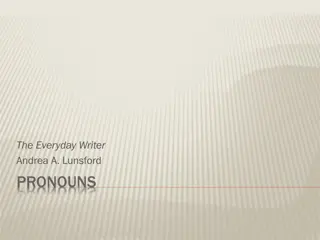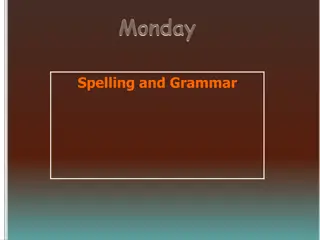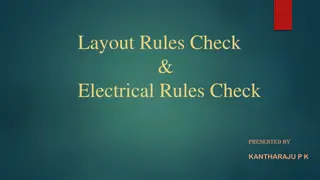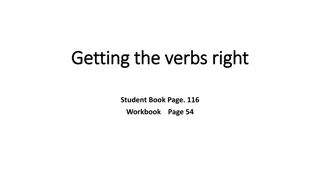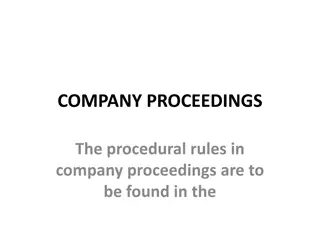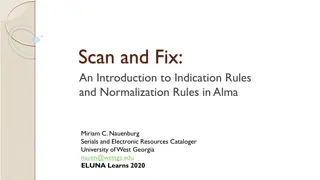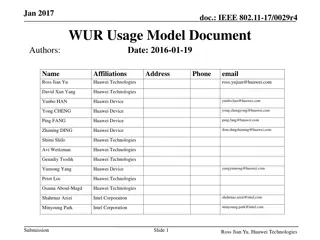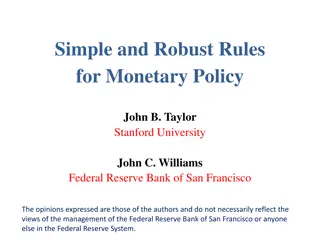Mastering Semicolon Usage: Rules and Examples
Learn how to effectively use semicolons with clear rules and examples. Discover when to replace a period with a semicolon, how to use it with conjunctive adverbs, and the Super Comma Rule for lists. Practice with provided examples to enhance your writing skills.
Download Presentation

Please find below an Image/Link to download the presentation.
The content on the website is provided AS IS for your information and personal use only. It may not be sold, licensed, or shared on other websites without obtaining consent from the author. Download presentation by click this link. If you encounter any issues during the download, it is possible that the publisher has removed the file from their server.
E N D
Presentation Transcript
Rule 1 -A semicolon can replace a period between two closely related independent clauses. Examples: -Call me tomorrow; you can give me an answer then. -I m looking for my book; where do you suppose I put it?
Rule 2 -If there is a conjunctive adverb linking two independent clauses, you should use a semicolon. Some conjunctive adverbs are: moreover, nevertheless, however, otherwise, therefore, then, finally, likewise and consequently. Example: -The students had been advised against walking alone at night; however, Cathy decided walking wasn t dangerous if it was early in the evening.
Rule 3 -Super Comma Rule: Use a semicolon to make a list of items that are separated by a comma. This often occurs when listing names, dates, locations, and descriptions. Examples: -We had students from Lima, Peru; Santiago, Chile; and Caracas, Venezuela. -Her classmates were attending college for a variety of fields, including Sarah, who wanted to study biology; Samuel, who wanted to study psychology; and Seth, who wanted to study mathematics.
Try these examples: 1. I like chocolate however I don t like dark chocolate. 2. I can t eat strawberries they give me a rash. 3. I am really disgusted with my essay therefore I am going to revise it. 4. The crowd was too rowdy consequently the band quit playing and walked off the stage.
